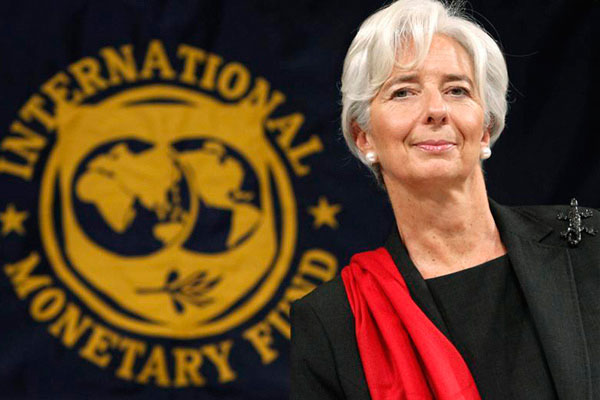
Lagarde ... strong outlook for Qatar’s economy.
Qatar growth likely to top 4.5pc: Lagarde
DOHA, November 11, 2015
Qatar’s growth could accelerate from 4 percent in 2014 to above 4.5 percent this year and next, supported by a large public infrastructure program and opening of a new natural gas field, said Christine Lagarde, IMF managing director.
The decline in oil and natural gas prices will substantially reduce external and fiscal surpluses, but its impact on growth will be softened in the near term due to the availability of Qatar’s sizeable financial buffers and continued public investments, she added in a statement issued yesterday (November 10) at the conclusion of her visit to the country.
“It has been a great pleasure to visit Qatar, where I met HH Emir Tamim bin Hamad bin Khalifa Al Thani and discussed with him the global and domestic economic situation. I also conferred with H.E. Prime Minister Abdullah bin Nasser bin Khalifa Al Thani, HE Finance Minister Ali Shareef Al Emadi, and HE Central Bank Governor Abdullah bin Saoud Al Thani,” Lagarde said in the statement.
“We exchanged views on the important role Qatar plays in regional and global economic developments as well as the challenges and opportunities facing the region. I conveyed my appreciation for Qatar’s commitment to ensure that the IMF’s resources were sufficient to help IMF members in need.
“My visit was a great opportunity to meet with students and youth leaders, members of the private sector, as well as some leading Qatari women. Our lively exchange of views at the Georgetown University School of Foreign Service gave me a better sense of the current situation in Qatar and across the GCC region.
“Qatar’s public finances remain comfortable, but, with the drop in oil and natural gas prices, the portion of exhaustible resource revenues being saved may not be sufficient to maintain the same standard of living for future generations.
“Thus, the recent steps by the Ministry of Finance to improve the budget process and formulate a fiscal consolidation strategy in the context of a medium-term framework are welcome. Given the strong starting financial position, the fiscal consolidation can be gradual so as to reduce the risk of adverse effects on economic activity,” she added.
“Substantial progress has been made on enhancing financial sector regulation, including adopting the international regulatory framework for banks, Basel III. The banking system in Qatar is well-placed to weather lower oil prices, weaker non-hydrocarbon growth, and higher US interest rates.
“Nevertheless, as hydrocarbon revenues decrease and external financing conditions tighten, the central bank will need to remain vigilant for pressures in the system and provide liquidity to the financial sector if needed. Further enhancements to the early warning system and addressing data gaps would facilitate a timely monitoring of risks, including from overheating in the real estate market.
“Qatar has made important progress in diversifying its economy into nonhydrocarbon activities, and policymakers can support this process through additional structural reforms to further enhance the business environment.
“I thank the Qatari authorities and people for their generous hospitality.” – TradeArabia News Service







